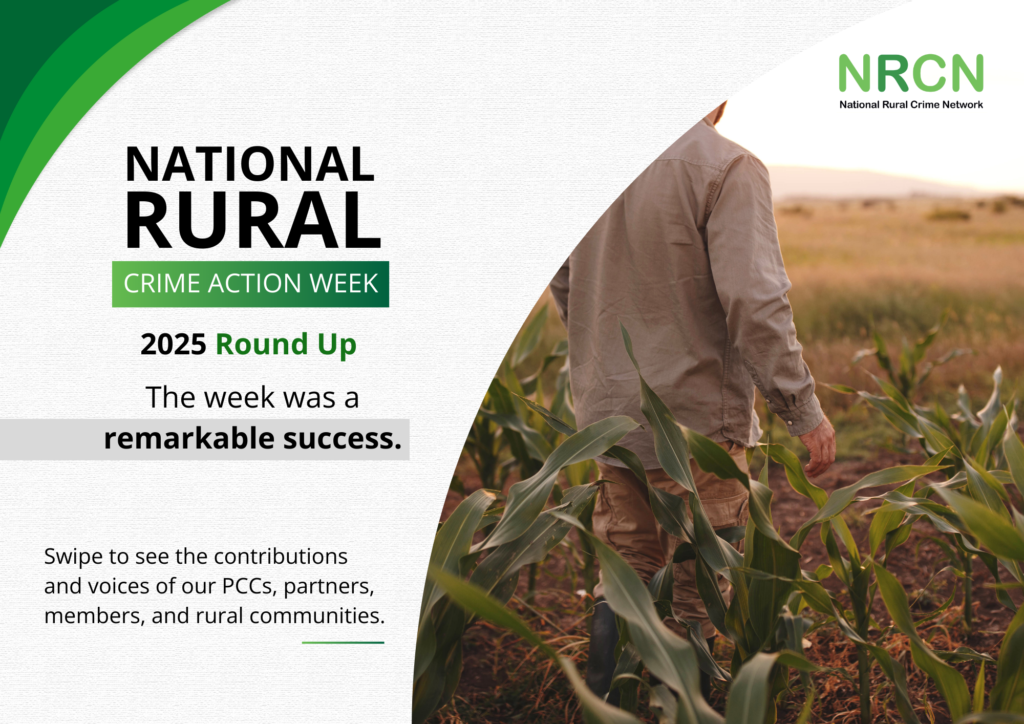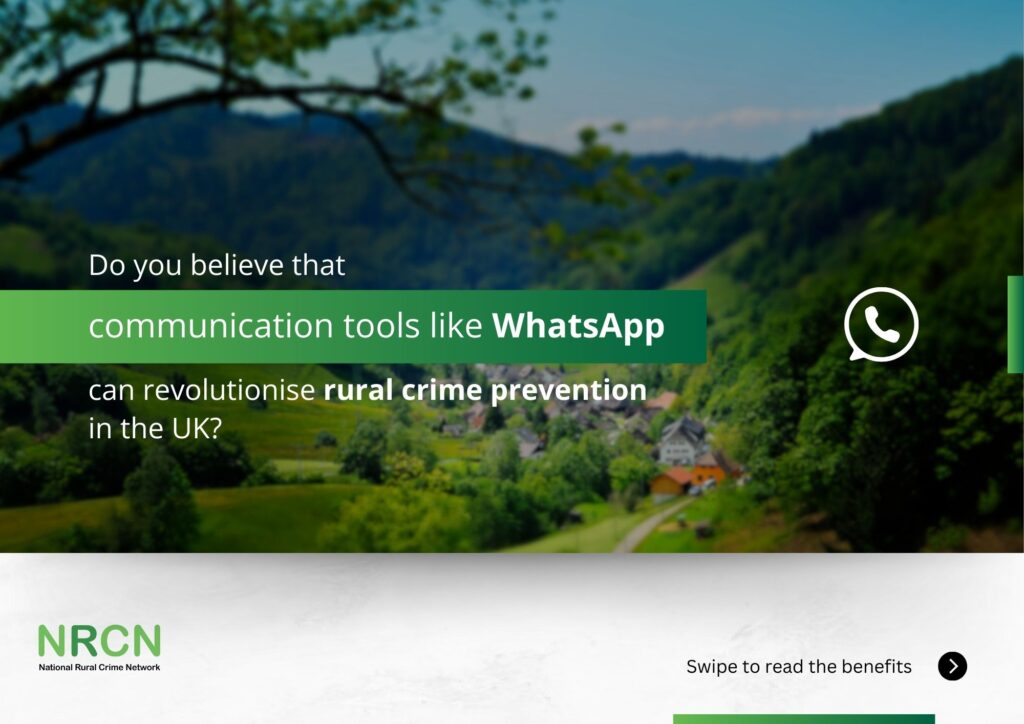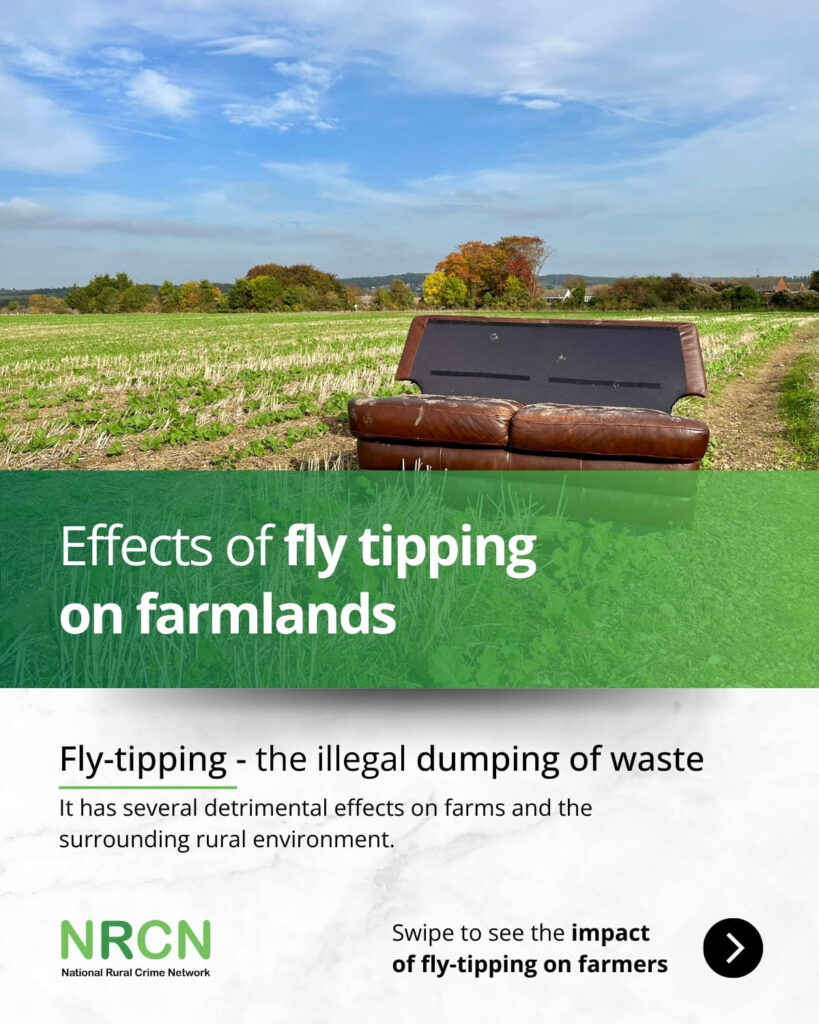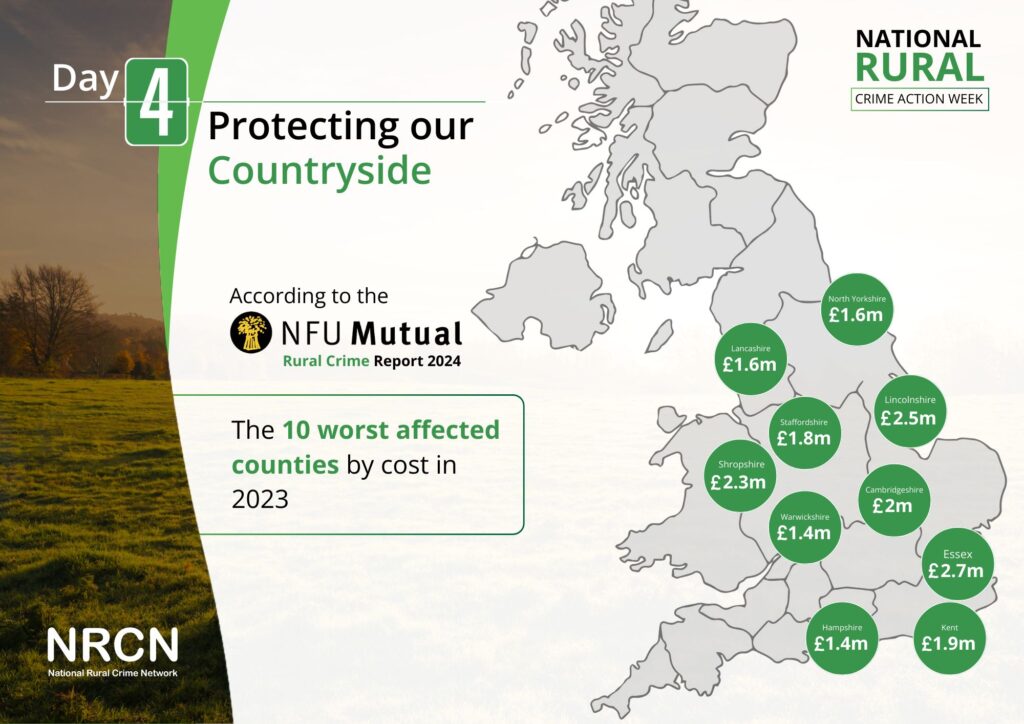Livestock Attacks Cost to UK Farmers £1.95 Million in 2025

Livestock Attacks Cost to UK Farmers £1.95 Million in 2025 Rural communities are facing a growing threat from dog attacks on farm animals. According toNFU Mutual reports 2025, livestock worrying caused an estimated £1.95 million in losses, a 10 % increase from 2024. A survey of 1,407 dog owner’s highlights worrying trends: over 57 % let their dogs the off lead in the countryside, 1 in 10 dogs have no recall, 1 in 20 have chased livestock, and 72 % of owners are not taking steps to prevent chasing. Even calm or friendly dogs can chase livestock, and the stress alone can seriously harm or even kill pregnant ewes and newborn lambs. Rob Taylor, NPCC’s livestock attacks lead and NRCN Board Member, stresses that responsible ownership is key to preventing these incidents. With countryside visits set to rise, the NRCN and our partners are encouraging: Keep dogs on a lead anywhere livestock may be present Let go of the lead if chased by cattle, for your own safety Never let dogs roam unsupervised, even in gardens near livestock fields Report any incidents to the police or local farmers immediately Recognise that all dogs can chase or injure livestock, regardless of size or breed Together, we can prevent distressing and costly attacks this season. The upcoming Dogs (Protection of Livestock) (Amendment) Act gives police stronger powers in England and Wales. Everyone can help by keeping dogs on a lead near livestock, supervising them, and reporting incidents immediately. Together, we can help prevent distressing and costly attacks this season.
Countryfile Exposes the Reality of Rural Abuse

Countryfile Exposes the Reality of Rural Abuse Countryfile Exposes the Reality of Rural Abuse We need Action on Tackling Rural Domestic Abuse! We are pleased to see BBC Countryfile highlight the often hidden realities of rural domestic abuse, stalking and sexual violence. The NRCN’s groundbreaking research, published nearly seven years ago, remains just as relevant today, but awareness alone isn’t enough. We need action. Rural domestic abuse isn’t worse than abuse elsewhere, but it is different, and it demands a different response. Yet the Government’s recent VAWG strategy contains no dedicated rural measures. We’ll continue pushing for the recommendations of Captive and Controlled to be implemented and proudly stand alongside Judith Vickress, RiTA (Rural Initiatives Tackling Abuse), and others driving real change. A huge thank you to Rhianon Bragg, whose courage in sharing her story helps ensure the government and the public understand the unique challenges survivors face in rural communities.
National Rural Crime Action Week Press Release

National Rural Crime Action Week Press Release National Rural Crime Action Week 2025: A United Voice for Rural Communities The National Rural Crime Network (NRCN) has concluded a powerful week of awareness, action, and partnership through National Rural Crime Action Week 2025 – bringing widespread attention to the true cost of rural crime and showcasing the initiatives being taken to protect countryside communities. This year’s theme – “Voices from the Countryside” – placed rural experiences at the centre of the conversation. From theft of machinery and fly-tipping to domestic abuse in isolated areas and arson devastating farms, the week highlighted that rural crime is a serious and costly threat that undermines livelihoods, safety, and resilience across the UK. The week opened with day one themed ‘What You Don’t See’ focusing on the hidden costs of rural crime – the damage that is not always visible. From the disruption caused by stolen tractors, quads, and GPS systems to the erosion of community confidence, the message was clear: prevention matters. Simple layered measures – from secure gates and alarms to forensic marking and accurate inventories – can reduce risk and strengthen resilience. Day two highlighted, ‘Rural Forces Rising’ – the role of proactive rural policing. From specialist rural crime teams to new technology such as drones, mobile CCTV, and Automatic Number Plate Recognition (ANPR), the campaign showed how enforcement and visibility are making rural areas more hostile to organised criminals. Collaboration between police, landowners, and rural residents remains key to tackling theft, poaching, hare coursing, and fly-tipping. The mid-week (day three) stressed on the theme, ‘Rural Crime is Bigger Than You Think’ – the breadth and scale of rural crime. Beyond machinery theft and environmental damage, rural communities face hidden harms including domestic abuse, economic coercion, and isolation. The day also focused on the vital role of farming and food security in rural life, highlighting how protecting agriculture goes hand in hand with tackling rural crime. In many areas, where “everyone knows everyone,” the fear of being judged or exposed can prevent people from seeking the help they need. Limited public transport, fewer specialist services, and distance from larger towns or cities can further isolate residents, creating real barriers to safety and support. Highlighting these hidden struggles, day four with a theme, ‘Isolated, Not Alone’ emphasised the importance of visibility, outreach, and collaboration, showing that no one in the countryside has to face these challenges alone. The final (fifth) day, themed, ‘The Power of Policy’ – underlined the role of legislation and targeted investment in empowering communities. From the Equipment Theft (Prevention) Act 2023 to new funding streams supporting rural policing, effective policies can deter criminals and ensure long-term security. Rural voices remain central to shaping the decisions that protect them. The NRCN’s partners – the Country Land and Business Association (CLA), the National Farmers’ Union (NFU), the Rural Services Network, and the Willow Project – stood at the forefront throughout the week, amplifying rural voices and driving home the message that rural crime must be treated as a national priority. Alongside them, a wide range of organisations, community groups, businesses, and individuals joined forces to share insights, raise awareness, and stand in solidarity with rural communities. Tim Passmore, Chair of the National Rural Crime Network, said: “This year’s Action Week brought the real voices of rural communities to the forefront. The message is clear – rural crime is a significant and pervasive threat, and rural communities will not be left behind. From innovation in policing to national campaigns on farming and domestic abuse, we have shown what can be achieved when we work together. The NRCN will continue to fight for rural communities, ensuring they are safe, supported, and heard.” The NRCN thanks all partners, supporters, and individuals who helped make National Rural Crime Action Week 2025 a success. Together, we can protect livelihoods, strengthen communities, and make rural Britain safer.
Unseen, Unheard, Unprotected

Unseen, Unheard, Unprotected When we talk about domestic abuse, most people picture city life, close neighbours, public services, and quick escape routes. But what happens when that same abuse is unfolding in a remote village, away from the nearest town, and without a soul around for miles? That’s the harsh reality. Domestic abuse exists everywhere, including rural areas, and its effects are often far-reaching. It is time to take a closer look at what is really going on and understand the challenges faced by those affected. The Hidden Reality of Rural Abuse Abuse in remote areas is frequently a subtle, hidden force rather than simply a violent act. Many people think that rural areas provide a secure haven because of their beautiful scenery and connected communities. For individuals who are abused, however, the situation is quite different. Lack of privacy, lack of support options, and transportation barriers make it more difficult for victims to escape their situation. In reality, survivors of abuse in rural areas frequently encounter more barriers when attempting to get assistance. In tightly connected communities where privacy is limited and people are frequently more focused on maintaining their reputations than resolving underlying problems, the stigma associated with domestic violence is intensified. Isolation: The Silent Barrier Rural victims of domestic abuse frequently have nowhere to turn, unlike urban areas where shelters, support systems, and advocacy groups are more readily available. Limited access to public transport means victims struggle to get to local services, and long distances between towns or villages can make it difficult to reach out for support. This isolation adds to the controlling aspect of abuse because abusers often utilise communication and transportation control to further isolate their victims from any kind of support. Rural abuse is not just about physical violence; it is about emotional manipulation, isolation, and the overwhelming sense of helplessness that survivors often feel. Shifting Perceptions: Breaking the Silence One of the most powerful tools in the fight against rural abuse is raising awareness. The more people understand the signs of abuse, the better equipped they are to support victims in their communities. The more aware we are, the better we can help safeguard our community in these situations. The Willow Project: A Lifeline for Rural Communities At the National Rural Crime Network, we recognise that rural victims of domestic abuse often face significant barriers when seeking safety and support. That is why we are proud to work alongside The Willow Project, an initiative making real, local impact where it is most needed. We are working with The Willow Project to change the story for rural survivors of domestic abuse. Their outreach, safe spaces, and specialist support are creating lifelines where there were once none. Together, we are amplifying rural voices, challenging the systems that overlook them, and pushing for real change in how abuse is recognised, reported, and responded to, no matter the postco Conclusion Domestic abuse does not stop at the city’s edge. In rural communities, it remains one of the most hidden and under-acknowledged crimes, shaped by isolation, stigma, and poor access to services. The Willow Project and NRCN are bringing attention to the issue, offering support to survivors, and encouraging communities to be more proactive in helping their neighbors. On 2nd June 2025, we convened a dedicated Domestic Abuse Working Group, bringing together frontline organisations, researchers, rural safeguarding leads, and specialist support providers from across the UK. Together, we examined the persistent gaps in rural provision, the barriers survivors face, and what meaningful, localised solutions must look like. As part of this, we have launched the Rural Domestic Abuse Working Group to help include rural needs into the Government’s Violence Against Women and Girls (VAWG) strategy, ensuring the specific challenges of rural survivors are no longer sidelined in national decision-making. If you’re in policing, frontline support, or rural leadership, we’d like for you to be a part of this ongoing effort. Together, we can ensure that rural abuse is not hidden anymore and that every survivor has a chance to be heard, seen, and supported.
NRCN Annual Conference 2025

You are unauthorized to view this page. Username Password Remember Me Forgot Password
WhatsApp In Rural Crime Prevention

WhatsApp In Rural Crime Prevention Innovative tools like WhatsApp are proving to be valuable assets in the fight against rural crime. By enabling quicker communication between community members and authorities, we can respond faster and more effectively to incidents. Swipe through the carousel to understand how this technology-driven approach is just one of the many steps we need to enhance rural safety and security, ensuring that even remote areas are better protected.
Imapct of Fly-tipping

Impact of Fly-tipping Fly-tipping is a constant plague on farmlands, causing significant damage to the environment and local farming communities. Swipe through the carousel to understand how illegal waste dumping on farmlands is affecting farmers. By raising awareness and enforcing stronger penalties, we can work together to tackle this growing issue.
10 Worst affected Counties by Cost in 2023 as per NFU Mutual

19 September, 2024 10 Worst affected Counties by Cost in 2023 as per NFU Mutual It is day 4 of National Rural Crime Action Week 2024, where our focus is on Protecting our Countryside! The NFU Mutual Rural Crime Report 2024 has revealed a stark reality that demands our attention. These figures highlight the urgent need for action and collaboration within our communities. This week is not just about raising awareness; it is about empowering residents and law enforcement to take a stand against rural crime. Let us unite for #ProtectingourCountryside.
Rural Crime Report 2024 by NFU Mutual

19 September, 2024 Rural Crime Report 2024 by NFU Mutual NFU Mutual’s latest figures show a 4.3% rise in 2023, pushing the cost of crime in rural areas to a staggering £52.8m. Criminal gangs are increasingly targeting farmyards and fields, capitalising on high inflation and strong resale markets both in the UK and overseas. The impact is felt across rural communities, with theft of farm machinery, tools, livestock, and even large-scale fly-tipping contributing to this surge. These crimes are not isolated incidents; they are often part of organised criminal networks that operate across regions, leaving rural communities vulnerable. Rural crime is a serious issue, but with vigilance and the right preventive measures, we can work together to reduce its impact. To know more, read NFU Mutual’s complete Rural Crime Report 2024 now: https://www.nfumutual.co.uk/farming/rural-crime/.
‘How farms are being targeted by criminal gangs stealing machinery to order for Russia’ – ITVnews Segment

14 May, 2024 ‘How farms are being targeted by criminal gangs stealing machinery to order for Russia’ – ITVnews Segment According to a recent segment by ITVnews featuring Chair of NRCN, Tim Passmore, an average of 170 agricultural vehicles are stolen every month! https://youtu.be/r2SQbMSupks?si=hWTY-KtLTdNgsZ44 Watch this interview featuring the Chair of the NRCN, Tim Passmore, to learn about how these stolen goods are making their way out of the country, leaving our farmers without the tools they need to make a living. As highlighted by Tim, criminals are increasingly targeting this equipment due to the high prices they can fetch on the black market. This calls for a stronger police presence in rural areas to deter criminals and improve response times. Additionally, farmers need access to more effective security measures, such as GPS tracking, forensic marking for equipment, and improved fencing. Watch the complete story on ‘how farms are being targeted by criminal gangs stealing machinery to order for Russia’ now!

